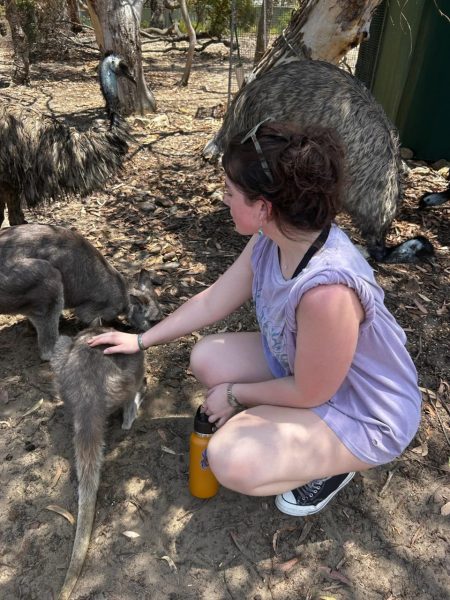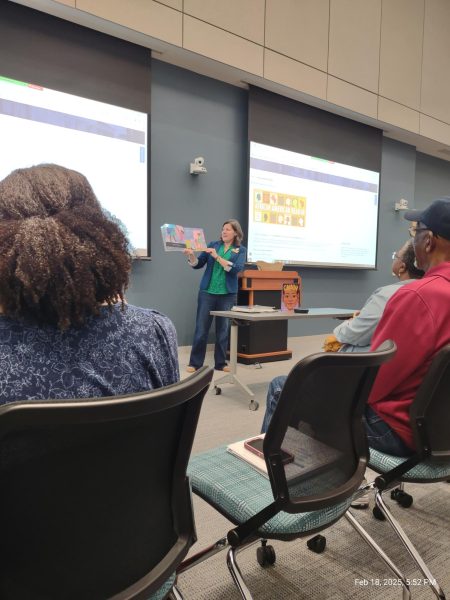UNCW ready to adopt proposal to improve protections of human research subjects
The Office for Human Research Protections announced a proposal July 22 of this year to make changes to current regulations protecting human subjects in research studies. The proposal is open to receive public comments until Oct. 26. The proposed changes are supposed to improve the process for reviewing studies while maintaining a high level of protection for human research subjects.
Researchers here at UNCW have had mostly positive responses to the proposal according to Angela Kelly, the regulatory compliance officer for UNCW’s Office of Research Services and Sponsored Programs. These changes would mean less paperwork for many of the school’s faculty and student researchers.
The proposal is the result of examination of current regulations done in compliance with an executive order from President Obama, which calls for regulatory review. Government agencies are supposed to tailor their “regulations to impose the least burden on society,” according to executive order 13563.
In the New England Journal of Medicine article, “Reforming the Regulations Governing Research with Human Subjects,” Drs. Menikoff and Emanuel write, “critics have noted that current regulations could be doing a significantly better job in protecting research subjects.” Menikoff is the director of the Office for Human Research Protections.
Conducting experiments with human subjects can be dangerous, which is why rules for their protection were proposed by the Department of Health, Education and Welfare in August 1979, according to HHS.gov.
One example of the potential dangers inherent in research is a recent study on a stent intended for preventing strokes. The New York Times reported in an article published Sept. 7 that five people died during the study.
Despite the dangers, research is important, but “the human subject research landscape has changed dramatically” since when the original regulations were created, according to HHS.gov. Current protections are outdated, so it’s time for an update.
Dr. Susan Roberts, an associate professor working in the clinical research program of UNCW’s School of Nursing, says that the speed of the process set in place to protect human subjects slows “getting the answer to your study and potentially saving lives.”
In order to update the process, the Advanced Notice of Proposed Rulemaking (ANPRM) addresses the many concerns critics have raised. Three of the main concerns the ANPRM addresses are the number of Institutional Review Boards a study must be reviewed by, the number of studies being reviewed and the over-complicated language in informed consent forms. To address these concerns, the ANPRM proposes using a single Institutional Review Board for domestic sites in multi-site studies, which will reduce the number of reviews a study must pass. The ANPRM also proposes “revising the existing risk-based framework to more accurately calibrate the level of review to the level of risk,” allowing more studies to qualify as low-risk and be exempt from ongoing Institutional Review Board consideration. And finally, the proposal calls for updates to the forms used for informed consent.
Kelly says that administration and faculty conducting research are busy, so reducing the time a study spends in multiple reviews, or for some studies removing the need for a full review, will save UNCW’s busy faculty valuable time. “It’s a lot of paperwork,” says Kelly.
As Menikoff and Emanuel’s article states, “to reduce paperwork, the protocol submitted
by researchers for studies posing minimal risk could be streamlined, and templates might be created to simplify the process of putting together a protocol and consent form that satisfy regulatory standards.”
The most widely accepted change is the proposal to update the informed consent forms. The goal would be to make them shorter and easier to understand. Researchers want to avoid burying the potential subject in legalese designed to protect the researcher from lawsuits more than to inform the subject.
Dr. James Lyon, a lecturer in the UNCW School of Nursing says, “The key thing is that the subject is informed and they volunteer.” Lyon describes a situation when a subject comes into the physician during a clinical study and is asked to explain what is expected of them and what they expect from the study, but they cannot. “They were not informed,” said Lyon. They were given the consent form, but did not understand what they read, or the vital information was buried. Sometimes, once the study is explained more fully to them, the subjects decide they no longer wish to participate.
Roberts says that consent is important, “so you’re not treating them like guinea pigs.” Before a subject participates in an experiment there must be trust, so it is important that they understand what is expected of them and that they participate voluntarily.
The consensus in the comments submitted about the proposal via the recovery.gov website seems to be that researchers are appreciate the changes to the consent form aspect of the proposal more than any other proposed change. This shows a high level of concern for their research subjects, whom they have a symbiotic relationship with.
UNCW is also concerned with the safety of human subjects and has set up steps to ensure their safety. The Institutional Review Board for the school enforces policies, such as assuring that all student researchers have a faculty Principal Investigator who is responsible for their undergraduate or graduate project. Researchers are expected to complete training through CITI Program on how to protect their human research subjects. UNCW’s Institutional Review Board has created a form for researchers to complete detailing their study methods, as well as a template to follow for informed consent forms.
The Office of Research Services and Sponsored Programs remains up to date with all of the current regulations, and will continue to do so. Faculty don’t have to worry too much about it. Dr. Rich Ogle, chair of the Psychology department says, “I just adopt things as they come along as a researcher.”
As to when the proposed changes will come along, Office for Human Research Protections spokesperson Ann Bradley says the “OHRP cannot predict with accuracy how long the process might take: the extended public comment period is underway and many issues remain to be resolved, so any such prediction would be entirely speculative and, therefore, meaningless.”











